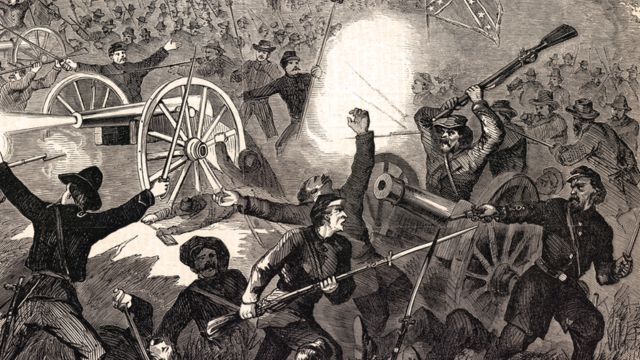Pivotal Battle at Champion Hill: Shaping the Outcome of the American Civil War
The American Civil War was defined by the Battle of Champion Hill, which took place on May 16, 1863. The conflict between Lt. Gen. John C. Pemberton’s Confederates and Union forces under Maj. Gen. Ulysses S. Grant would determine the outcome of the Vicksburg Campaign.
The biggest engagement of the campaign was won by the Union at Champion Hill, popularly known as Baker’s Creek, which prepared the way for the siege of Vicksburg. The aftermath of the battle demonstrated the fury of the conflict and the tactical cunning of Union command, with thousands of losses.
Which Battle Was a Major Victory For the Union in the American Civil War?
The American Civil War saw Union and Confederate armies engage in combat in and around the Pennsylvanian town of Gettysburg from July 1–3, 1863.

The fight is frequently referred to as the war’s turning point because it resulted in the greatest number of casualties throughout the conflict. Union Maj. Gen.
Shaping the Outcome of the American Civil War
Confederate communication connections were destroyed after the Federals captured Jackson, Mississippi, putting Pemberton squarely in the path of Grant’s advancing soldiers. Union forces quickly advanced, taking advantage of the Confederate left flank and taking control of the key high ground as the combat got underway.
The Confederate defense faltered in the face of a determined counterattack spearheaded by General John S. Bowen and a resolute fight that ultimately resulted in a retreat toward Vicksburg.
The Union army took control of a crucial intersection as Pemberton’s soldiers withdrew, almost completely blocking the Confederate escape route. General Lloyd Tilghman gave his life in a heroic rear-guard action to buy the Southern retreat time.
Confederate losses at Champion Hill and Big Black River combined to imprison Pemberton’s army in Vicksburg, leading to a torturous 47-day siege and the city’s eventual capitulation.
Conclusion
As a National Historic Landmark, Champion Hill preserves the memory of the fight that was essential to the Union’s objective of seizing control of the Mississippi River. The battle not only demonstrated Grant’s military superiority but also dealt the Confederacy a blow from which it would never fully recover, highlighting Vicksburg’s strategic importance and changing the direction of the Civil War.
